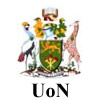In this millennium, drylands all over the world are faced with problems that present tough management, research and policy challenges. These areas cover about 40% of the earth’s land surface, and are home to more than 38%of the world’s population. People living in drylands constitute a large fraction
of the worlds poorest. Of the world’s most disadvantaged countries, according to United Nation Development Programme’s Human Development Index, over 50% are in dryland Africa. In Africa, two thirds of which is desert or drylands, 73% of the agricultural drylands are moderately to severely degraded. With a rate of disappearance of forest cover of 3.7 to 5 million ha per year bearing down on both surface and groundwater resources and with half the continent’s farmland suffering from soil degradation and erosion, Africa is under the greatest desertification threat The sustainable development of drylands and improvement of livelihoods in the drylands characterized by intense poverty is a priority development agenda in eastern and southern Africa. This will involve interventions targeting, inter alia,
increased production and livelihoods systems productivity, and water management options.
